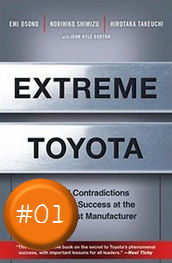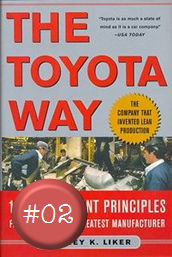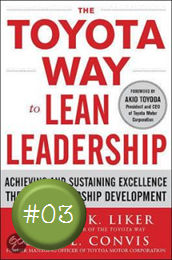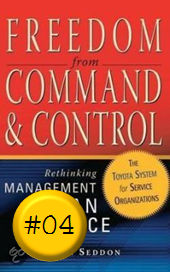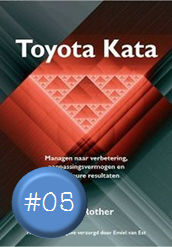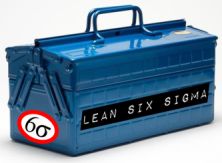
Professor Christopher Roser beschrijft op zijn blog All About Lean.com zijn bevindingen over Lean in het algemeen en het toepassen ervan in het bijzonder.
In zijn blogpost Where Lean Went Wrong - A Historical Perspective (16 mei 2017) beschrijft hij waarom Lean implementaties vaak mislukken. Eén van de oorzaken zijn de misvattingen over wat het Toyota Production System (TPS) nu eigenlijk inhoudt. Interessant daarbij is zijn beschrijving van hoe Lean naar Amerika is gekomen en hoe hierbij Shigeo Shingo deels onterecht een Lean-goeroe status verkreeg.
Hieronder enkele citaten:![]()
The United States Takes Notice
After WW II, US car makers were happily producing like they always had, ignoring the Japanese competition. The US defeated Japan in the war anyway. However, during the 1973 oil shock, US car makers encountered big problems. Customers suddenly preferred more-fuel-efficient Japanese cars over the typical US gas-guzzlers. Even with declining sales, Japanese car makers seemed to handle the problem much better than the US makers, who quickly racked up large inventories of unsold cars.
A famous 1984 study by the Massachusetts Institute of Technology (and the subsequent book, The Machine that Changed the World, published 1990) found that the US needed twice the manpower to produce a car, much more floor space, inventory etc., while creating many more quality problems while doing so.
There was great interest in how the Japanese and especially Toyota managed their production. Unfortunately, there was no English-language information available on this. Of course, there was much information available in Japanese, but this may as well have been in ancient Egyptian hieroglyphs. The first English paper about lean appeared in 1977, and only from 1980 onward did written works appear in larger quantities. Yet, merely reading about the Toyota way did not help much. The US needed people with experience.
The First Lean Guru – Shigeo Shingo
One of the first people to arrive in the US with experience at Toyota was Shigeo Shingo. With the help of a US promoter, Shingo soon achieved the status of a guru. However, Shingo was never really an insider at Toyota. To the best of my knowledge, he visited Toyota about once every three months to teach a 4 week workshop on industrial engineering basics called P-Course . He was the moderator for one of the last workshops on SMED (back then known as QDC for Quick Die Change), while the method was already firmly established at Toyota. He tried to learn from Ohno, but met a reluctant Ohno only very few times. Overall, Shingo was probably a small fish among the many people in Japan who worked with or contributed to the Toyota Production System.
Eventually he wrote a book on the “Toyota Production System” (later translated into English as the “Shingo System”). My friends at Toyota have read his books, not because he is famous in Japan (he is not), but only to learn what all the US fuzz about the great lean expert Shingo is about. They were quite disappointed and considered the book not very useful for implementing lean. Some Western lean experts I hold in high regard also agree with this.
Since this book was not authorized by Toyota, Toyota ended the twenty-year relationship, and Shingo moved to the US around 1980. There Shingo now was the one-eyed among the blind, and quickly propelled to guru status. This was helped by a tendency to boast and exaggerate on past achievements he may or may not have had (more on this in my post Shigeo Shingo and the Art of Self-Promotion. More sources also below). His view of lean manufacturing continues to shape what Westerners consider to be “lean,” which is very different from the approach at Toyota.
Bron: Where Lean Went Wrong - A Historical Perspective (16 mei 2017), Christopher Roser







